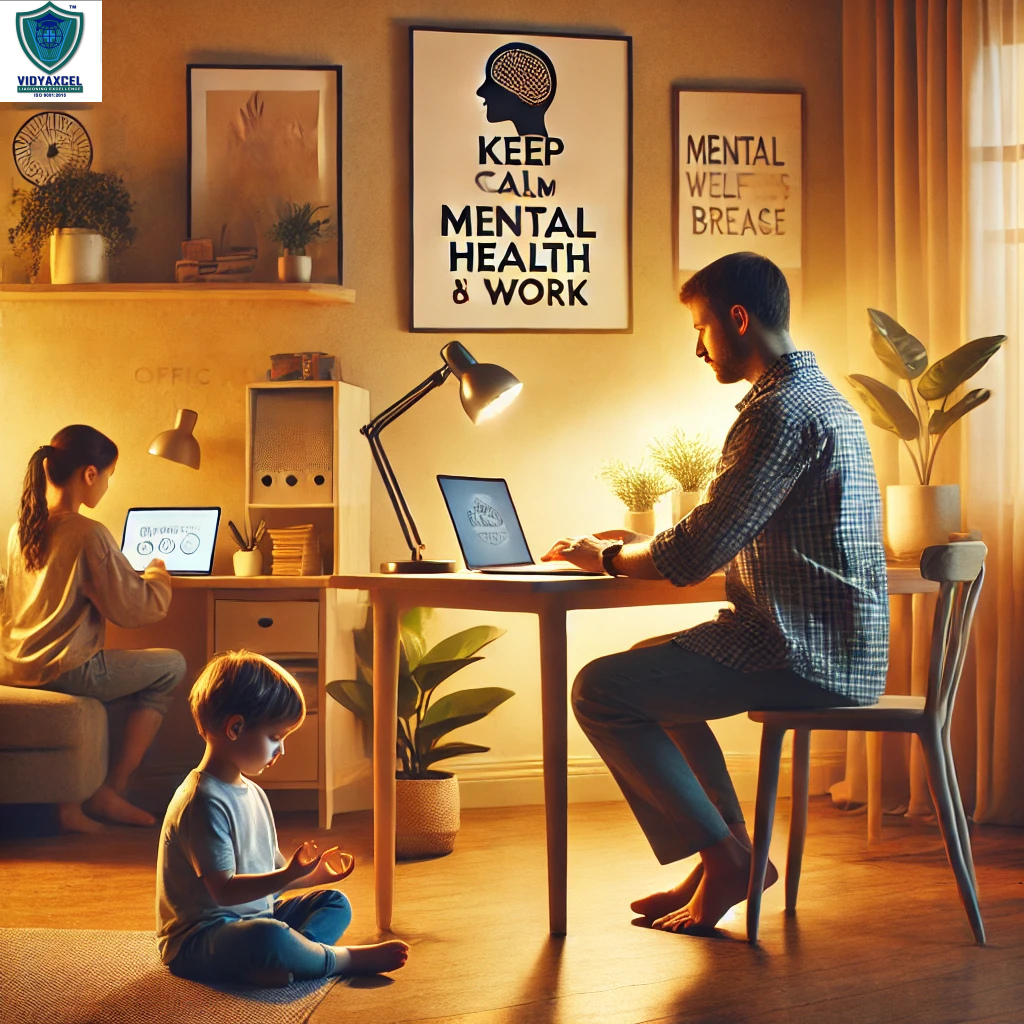Blog Details

27Dec
Mental Health Considerations for Working Parents
Balancing a career while managing the responsibilities of parenthood is a rewarding yet demanding journey. For working parents, mental health often takes a backseat amidst the constant juggling of professional deadlines, family obligations, and personal needs. Ignoring these challenges can lead to burnout, stress, and diminished well-being, affecting both parents and their families. This guide delves into the key mental health considerations for working parents and offers practical strategies to prioritize self-care, maintain balance, and foster a supportive environment at home and work. Here are some key considerations and strategies:
1. Recognizing Burnout and Stress
- Signs of Burnout: Exhaustion, irritability, lack of motivation, and difficulty focusing are common symptoms.
- Causes: Over commitment, lack of support and inadequate self-care are leading contributors.
- Solutions: Regularly assess your workload and responsibilities, and be willing to delegate tasks at work and home.
2. Managing Guilt and Expectations
- Parental Guilt: Many working parents feel guilty about not spending enough time with their children.
- Workplace Pressure: Parents often feel the need to over perform to compensate for time away from the office.
- Solution: Set realistic expectations for yourself and communicate openly with your employer and family about your limits.
3. Prioritizing Self-Care
- Physical Health: Exercise, healthy eating, and adequate sleep are foundational to mental well-being.
- Emotional Well-Being: Engage in activities you enjoy and set aside time for relaxation and hobbies.
- Mindfulness Practices: Techniques such as meditation, deep breathing, or yoga can help manage stress.
4. Creating Boundaries
- Work-Life Separation: Avoid work encroaching on family time by setting firm work hours.
- Dedicated Family Time: Prioritize undistracted time with your children to strengthen relationships and reduce guilt.
5. Seeking Professional Help
- Therapists and Counselors: Professional support can provide strategies for managing stress and improving mental health.
- Employee Assistance Programs (EAPs): Many workplaces offer mental health resources for employees.
6. Building a Support System
- Family and Friends: Don’t hesitate to lean on your network for emotional and logistical support.
- Parent Groups: Joining local or online communities can offer a sense of camaraderie and shared experiences.
7. Teaching Children about Mental Health
- Open Conversations: Talk to your children about stress and emotions to build their emotional intelligence.
- Modeling Self-Care: Demonstrate healthy coping mechanisms, which can teach children resilience.
8. Leveraging Flexibility
- Flexible Work Arrangements: Remote work or flexible hours can help reduce stress and improve work-life balance.
- Shared Responsibilities: Distribute household tasks among family members to reduce pressure on one parent.
9. Addressing Post-Pandemic Challenges
- Social Isolation: Many working parents have lost access to traditional support systems during the pandemic.
- Rebuilding Routines: Gradually reintroduce pre-pandemic routines to regain a sense of normalcy.
10. Monitoring Children’s Mental Health
- Behavioral Changes: Look for signs of anxiety or stress in children, as these may reflect family stress.
- Support Resources: Schools and pediatricians can provide additional support for your child’s mental health.
Conclusion
The mental health of working parents is critical not only for their own well-being but also for fostering a happy and healthy family dynamic. By recognizing stressors, setting boundaries, and seeking support when needed, parents can better manage the challenges of balancing work and home life. Remember, self-care isn’t selfish—it’s a vital part of being the best version of yourself for your family and your career. Embrace these strategies and create a sustainable routine that promotes mental wellness and harmony in your personal and professional life.
FAQ’s
How do I handle feelings of guilt about work-life balance?
- Remind yourself that perfection is not realistic, and doing your best is enough.
- Focus on quality time with your family rather than quantity.
- Celebrate small wins, both at work and home, to maintain a positive outlook.
How can I teach my kids about mental health while managing my own?
- Model healthy coping mechanisms, such as talking openly about emotions and stress.
- Encourage your children to express their feelings and reassure them its okay to struggle sometimes.
- Involve them in mindfulness practices like yoga or journaling.
What resources are available for mental health support for working parents?
- Many workplaces offer Employee Assistance Programs (EAPs) with counseling services.
- Online therapy platforms like Better Help or Talk space provide flexible options.
- Parenting support groups or online communities can offer advice and camaraderie.
How do I maintain mental health when my job is particularly demanding?
- Prioritize tasks and delegate whenever possible.
- Use short breaks during the day to recharge mentally.
- Set realistic expectations for what you can accomplish and communicate them to your team.
How can I balance remote work and parenting without feeling isolated?
- Stay connected with colleagues and friends through virtual meetups or chats.
- Join local or online parenting groups for shared experiences and advice.
- Involve your partner or support system in managing household and parenting responsibilities.
Our Office: West Bengal, Maharashtra & Delhi.
For More Infomation about admission in Medical, Engineering, Management & Study in Overseas Details.
View Current Study Overseas, Medical, Engineering & Management Admission Details Video.





